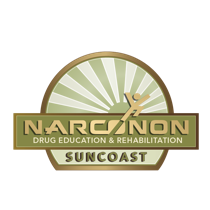Health and Nutrition Vital to Addiction Recovery

Addiction can be cruel in many ways. People can lose jobs, relationships, trust, respect, and often have a laundry list of other problems. The overall health of an addict often becomes an afterthought, especially to the addict amid substance abuse. With so many overwhelming problems piling up on one’s shoulders, who has time to worry about nutrition and health? I understand this well. My thoughts as an addict tended to seesaw between two thought patterns; I was either obsessed with finding the next fix with little thought about tomorrow or fantasizing about quitting drugs and cleaning up my life. I was rarely concerned for my health and wellbeing, one example being how I was constantly dehydrated but consuming enough water was never a priority of mine. This was, of course, misguided, because the damage that drugs create in the body, including the lack of nutrition and good hygiene, helped create all those negative emotional side effects. I understand this both from my own experience and from all those who I have had the privilege of seeing make the transformations that start with getting healthy and then evolve into healing emotionally and mentally.
Feeling healthy feels good. It is a huge motivator to stay clean and away from drugs once that feeling has been achieved. Based on my personal experiences in and out of treatment centers and from speaking with individuals who have had multiple relapses following their stays at treatment and detoxes, a lack of emphasis on good nutrition and getting a person feeling healthy physically is a huge flaw in the way we treat addiction. The physical health of a person trying to overcome substance abuse is of paramount importance because it eliminates the need to use drugs from a physical standpoint. Drugs, in the most basic sense, are used to escape reality. When a person’s reality, especially someone attempting to overcome addiction, is filled with physical discomfort, it becomes a much more difficult task to stay clean. Unfortunately, the primary solution to this problem used in our health care system for substance abuse has been to prescribe more drugs for that discomfort. This does next to nothing to heal a person physically and instead robs a person from the freedom of substance dependency.
Throughout my years in and out of different treatment centers, I was not very interested in nutrition. I just wanted to feel better and get off drugs. I was very impressionable at that time, so when the ‘experts’ at these rehabs made suggestions, I listened and did very little thinking of my own. I was a lost soul, so to speak. When the doctor told me about suboxone, I thought it sounded great because of the way it was presented to me. When that did not work, I tried the vivitrol shot because that sounded even better. These replacement drugs did not give me the euphoria of getting high and kept the withdrawal symptoms at bay, but I never felt healthy while taking them nor did I feel any freedom from the dependency of substances. I used these methods out of both desperation and blinded trust from what I was being told by people in the field.
I did not know then what I know now. In order to think for myself and make changes that were going to benefit me for the rest of my life, I needed to get my body healthy first. As I started to feel better physically, I started to realize the changes I needed to make in my life that were going to propel me forward, not backwards or stuck in a limbo. I am a big believer that overcoming addiction has more to do with creating a better life than it does focusing on not using drugs. It all starts with feeling healthy.
I have been on a bit of a fitness journey the last few months, rediscovering the athlete I once was when I was a younger man. I chuckle to myself whenever I make a health-conscious decision, such as choosing organic ingredients or counting calories. For so many years I did not care how I treated my body. I abused drugs and lived off cheap fast food when I had to eat to survive, never giving a moment’s thought to how my organs felt or why I continued to feel so horrible. Every attempt that I made to get clean and sober over the years without a focus on my physical health fueled the feelings of being a failure, and I suffered through those feelings for many years.
A healthy lifestyle breeds happiness and is so important when making changes that are going to need to last. Taking the holistic approach to overcoming addiction was the best decision I have ever made in my life and the main reason I am such a big advocate in it. The energy levels that I had early on, even more so today, were completely absent with any other method that I tried and unimaginable as an addict. There are unquestionably many mental and emotional aspects that need to be addressed and dealt with when a person is trying to overcome substance abuse and live a drug-free life. Addressing those issues after first addressing the physical aspect of addiction and focusing on healthy nutrition, not just the withdrawals but the malnutrition and lack of quality sleep, is something that I firmly believe is missing from so many treatment plans that allow a very short amount of time and an overreliance on more medication.
Vitamins, minerals, and healthy foods help create healthy habits. One of the most important tasks for a person attempting to overcome addiction is creating good and healthy habits that replace the bad habits driven by drug dependency. These can be as simple as staying hydrated, finding a routine again with meals, on down to behavioral habits that need to be broken such as the lying and manipulation. The heavier behavioral habits become much easier to break when a person starts feeling healthy and happy again. Healing the body needs to become a priority in treating addiction if we ever want to see the success rates go up with those we are aiming to help.
